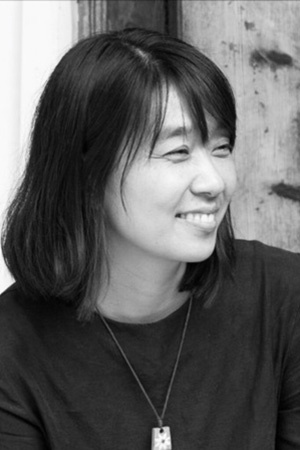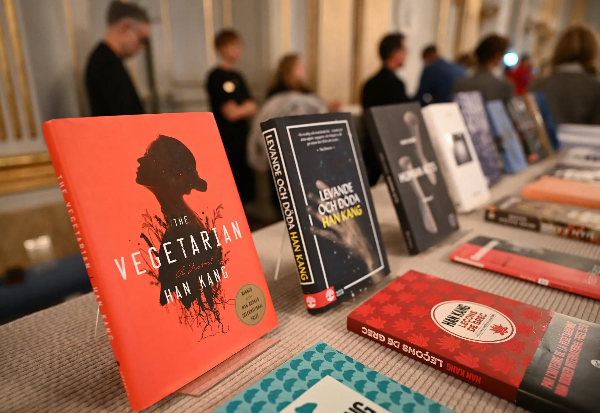-
한강, 2024 노벨 문학상 수상 -- IWP & NYT스크랩북 2024. 10. 12. 02:28
.
내가 한강의 소설을 처음 읽은 건 2000년에 Iowa 대학의 Writer's Workshop 웹사이트에서였다. 아이오와대의 International Wrting Program (IWP) 참가자들 작품이 올라 있었는데 한강의 단편은, 제목은 잊었는데, 나중에 한국에서 "내 여자의 열매"를 읽으면서 그 초본의 영역본에 해당한다고 생각했던 기억이 난다. 오늘 그 생각이 나서 IWP 사이트에 가보니, 1998 IWP 참가자 한강의 노벨상 수상 소식이 크게 올라 있다. 한강은 Orhan Pamuk과 Mo Yan에 이어 IWP 참가 작가 중 세 번째의 노벨상 수상자라고.
International Writing Program participant wins 2024 Nobel Prize in Literature다음은 위 기사에서:
“In her oeuvre,” the [Nobel] foundation states, “Han Kang confronts historical traumas and invisible sets of rules and, in each of her works, exposes the fragility of human life. She has a unique awareness of the connections between body and soul, the living and the dead, and in her poetic and experimental style has become an innovator in contemporary prose.”
Perhaps Han’s best-known work is the 2007 novel The Vegetarian, which won the International Booker Prize in 2016 and was named one of the best books of the year by The New York Times Book Review, Publisher’s Weekly, and Time. The book, which has been described as dark and Kafka-esque, was adapted into a film that was selected for inclusion in the 2010 Sundance Film Festival.
Han’s other novels include The Black Deer (1998), Greek Lessons (2011), Human Acts (2014), The White Book (2016), and We Do Not Part (2021). We Do Not Part will be published in English in 2025. Additional works include the short story collection Love of Yeosu (1995), the poetry collection I Put the Evening in the Drawer (2013), and the essay collection Quietly Sung Songs (2007).
Han is the third IWP resident to receive the Nobel Prize in Literature. In 2006, Istanbul-born novelist Orhan Pamuk, who was in residence during the fall of 1985, received the honor, and the 2012 award went to Chinese novelist Mo Yan, a 2004 resident.

Han Kang (사진: 위 기사에서)
A Woman Won South Korea’s First Literature Nobel. That Says a Lot.
By Motoko Rich and Choe Sang-Hun
Oct. 11, 2024, The New York Times
아래는 위 기사에서:
For her and other female authors in South Korea, writing “is a form of dissent and a form of resistance,” said Bora Chung, a writer whose collection of short stories, “Cursed Bunny,” was published in English in 2022. Ms. Chung’s book was one of several by female writers recommended by Ms. Han herself in The New York Times last year.
The government of Park Geun-hye, the conservative president of South Korea from 2013 until her impeachment in 2017, put Ms. Han on a “blacklist” of writers, artists and directors it considered unfriendly and barred from government-controlled support programs, according to Kang Yu-jung, an opposition lawmaker.
The list has never been made public, but Ms. Han was blackballed because the brutal crackdown chronicled in “Human Acts” was carried out by a past conservative dictatorship, Ms. Kang said. “We Do Not Part,” Ms. Han’s 2021 novel, discussed another civilian massacre that many conservative South Koreans did not want to see in public debate.
“The Vegetarian,” Ms. Han’s most widely read book internationally, is a chronicle of violence at a more intimate scale, of a woman oppressed in her own home.
“She told me that she did not want to celebrate at a time when people were dying everyday in the wars” in Ukraine and in the Middle East, Mr. Han [Han Kang's father] was quoted.
With women still facing discrimination in politics, the business world and the news media in South Korea, literature is an outlet where they can express their power.
“It’s one of the few spaces where you can be freed from gender,” said Krys Lee, a novelist who lives in Seoul. “You can write all of the ages and all genders.”

사진: 위 기사에서
'스크랩북' 카테고리의 다른 글
How Israel’s Army Uses Palestinians as Human Shields in Gaza (0) 2024.10.16 Nobel Prize in Physiology for Discovery of microRNA (0) 2024.10.13 Han Kang Is Awarded Nobel Prize in Literature (2) 2024.10.10 '평화를 위한 유태인의 목소리' (JVP) 반이스라엘 시위 (1) 2024.10.08 250년 만에 발견된 모짜르트의 Ganz Kleine Nachtmusik (0) 2024.10.01